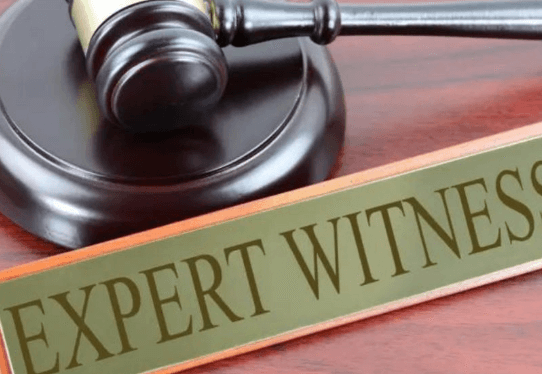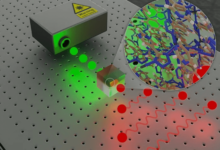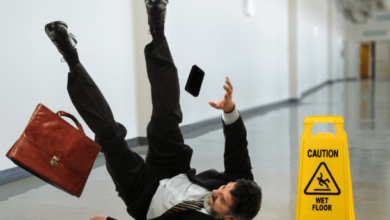The Importance of Expert Testimony in Forensic Litigation Support

Forensic litigation support is a critical component of legal proceedings, particularly in cases involving technical issues, complex evidence, or specialized knowledge. In these situations, expert testimony can make a significant difference in the outcome of a case. This article explores the vital role of expert testimony in forensic litigation support, detailing its impact on legal processes, the qualifications of expert witnesses, and the benefits it provides to both plaintiffs and defendants.
Understanding Forensic Litigation Support
Forensic litigation support services encompass a wide range of activities designed to assist legal teams in preparing and presenting cases. This may involve analyzing evidence, consulting on technical matters, and providing expert testimony in court. Professionals involved in forensic litigation support often have backgrounds in fields such as engineering, accounting, medicine, or other specialized areas, enabling them to offer insights that go beyond the understanding of general legal practitioners.
See also: The Importance of Choosing a Skilled Workers’ Comp Lawyer to Protect Your Livelihood
The Role of Expert Witnesses
Expert witnesses are individuals who possess specialized knowledge or expertise relevant to a particular case. Their primary role is to provide objective, unbiased opinions based on their expertise, which can assist the court in understanding complex issues. In forensic litigation, expert witnesses can cover various fields, including:
- Forensic Engineering: Analyzing structural failures or accidents.
- Financial Forensics: Investigating fraud or financial discrepancies.
- Medical Experts: Providing insights into medical malpractice or personal injury cases.
- Forensic Psychology: Assessing mental health issues relevant to legal disputes.
The Importance of Expert Testimony
1. Clarifying Complex Issues
Legal cases often involve intricate technical details that can be difficult for judges and juries to understand. Expert testimony helps demystify these complexities by breaking down complicated concepts into understandable terms. For instance, in an engineering case, an expert might explain the principles of load-bearing structures to clarify why a failure occurred.
2. Enhancing Credibility
Expert witnesses bring credibility to a case. Their qualifications and experience lend weight to their testimony, making it more persuasive to the judge or jury. When an expert provides an opinion based on years of study and practice, it can significantly influence the perceptions of legal decision-makers.
3. Supporting Evidence
Expert testimony can help corroborate other evidence presented in a case. For example, in a personal injury lawsuit, an expert medical witness can substantiate claims made by the plaintiff regarding injuries sustained in an accident. This alignment of expert analysis with physical evidence strengthens the overall argument.
4. Influencing Legal Strategies
Lawyers often rely on expert testimony to shape their legal strategies. An expert’s insights can inform case theories, settlement discussions, and trial preparations. For example, if an expert identifies a significant flaw in a plaintiff’s claims, the defense may choose to adjust its approach based on that information.
5. Providing Objective Opinions
Expert witnesses are typically neutral parties who provide objective analyses. Their role is not to advocate for either side but to present factual information based on their expertise. This objectivity can help mitigate bias, offering a clearer view of the issues at hand.
6. Enhancing Case Preparation
The involvement of an expert witness during the pre-trial phase can significantly enhance case preparation. They can assist attorneys in understanding technical details, evaluating evidence, and preparing effective cross-examination strategies for opposing experts.
Qualifying Expert Witnesses
Not all individuals with specialized knowledge qualify as expert witnesses. To be considered an expert, one typically must meet several criteria:
- Education and Training: Experts usually have advanced degrees or specialized training in their field.
- Experience: A significant amount of professional experience related to the matter at hand is crucial.
- Publications and Contributions: Publishing research or contributing to industry standards can enhance an expert’s credibility.
- Certifications and Licenses: Holding relevant certifications or licenses further establishes expertise.
In addition to these qualifications, experts must also be able to communicate their findings clearly and effectively to non-experts, such as jurors or judges.
The Process of Engaging Expert Witnesses
Engaging an expert witness typically follows these steps:
- Identifying Needs: Legal teams assess the case and determine what expertise is required.
- Researching Candidates: Lawyers look for qualified experts with relevant experience in the specific field.
- Initial Consultations: Attorneys may meet with potential experts to discuss the case and assess their fit.
- Formal Engagement: Once an expert is selected, a formal agreement is made outlining their role, responsibilities, and compensation.
Challenges in Expert Testimony
While expert testimony is invaluable, there are challenges that may arise:
- Daubert Standard: Courts often apply the Daubert standard to determine the admissibility of expert testimony. Experts must demonstrate that their methods are reliable and relevant to the case.
- Cross-Examination: Expert witnesses may face rigorous questioning from opposing counsel, who may seek to undermine their credibility or challenge their conclusions.
- Bias Concerns: The perception of bias can be a concern, particularly if experts have a history of working primarily for one side of litigation.
The Benefits of Forensic Litigation Support Services
Incorporating forensic litigation support services into legal proceedings offers numerous advantages:
- Comprehensive Analysis: Experts provide thorough analyses that encompass all relevant factors, leading to a more complete understanding of the case.
- Informed Decision-Making: With expert insights, attorneys can make more informed decisions regarding strategies, settlements, and trial preparations.
- Improved Outcomes: Cases that incorporate expert testimony often achieve better outcomes, whether through favorable verdicts or settlements.
- Increased Efficiency: Early engagement of forensic experts can streamline the litigation process, allowing for more efficient case management.
Conclusion
Expert testimony is an essential component of forensic litigation support services, playing a crucial role in clarifying complex issues, enhancing credibility, and providing objective opinions. The insights provided by expert witnesses can significantly influence legal strategies, case preparation, and overall outcomes. As the legal landscape continues to evolve, the integration of specialized knowledge through expert testimony remains vital in ensuring justice and effective dispute resolution.
For legal professionals navigating the complexities of forensic litigation, engaging qualified experts can be a game-changer. By leveraging forensic litigation support services, attorneys can enhance their cases and work toward achieving favorable results for their clients. As the demand for specialized knowledge grows in the legal field, the importance of expert testimony in forensic litigation will only continue to rise.





